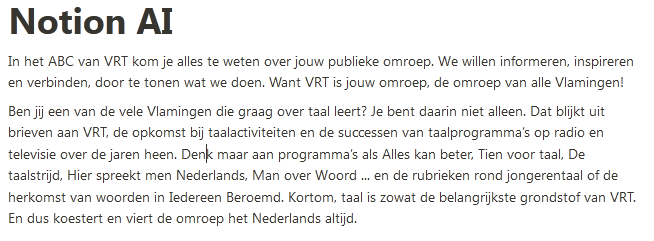Focus on Each Skill

1. Listening Skills
Here's a helpful tip: Many people aren't aware that you can adjust playback speed on Spotify and YouTube (and likely other apps too).
Not only can you speed it up to 2x—like you might with a friend's long WhatsApp voice message—but you can also slow it down for better comprehension.
Use ChatGPT as your patient friend who's always ready to repeat things for you:
- Open the ChatGPT app
- Click on the microphone icon as if you're going to dictate
- Instead of speaking, play the audio file you want transcribed from another device
- Stop the recording
- Get your accurate transcription
- Thank me later
2. Reading Skills
AI-curated reading materials based on the proficiency level
Want to make the most of this technique? Instead of using purely AI-generated texts (which can be hit-or-miss), try this: take a text about your interests and ask ChatGPT or Claude to simplify it to your desired level. I use the A1-C2 framework and get excellent results.
You can request simplification of just vocabulary or grammar structures—experiment with what works best for you.
Adaptive vocabulary builders
The most effective approach combines my flashcards system with Notion AI. Here's why:
Click here to see an example in one minute
While the video quality isn't perfect, here's my process:
- I ask Notion AI for 7 useful words and 7 sentences about beer in Brussels (in English by default)
- I request translations in French and Dutch
- When I receive three separate word lists, I ask AI to reorganize them into a three-column table by language—you'll see a screenshot of this on the next page
- The exact sentences matter less than what I can learn from them: new vocabulary, grammatical structures, translation differences, and linguistic patterns
Remember we're human—when something sounds off, like "een met kersen op smaak gebrachte lambiek" in Dutch, I prefer to rephrase it, especially since Dutch isn't my native language.
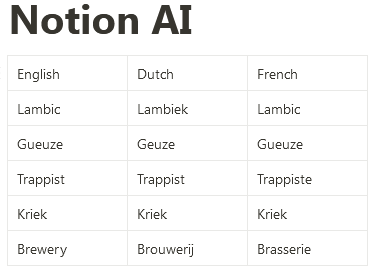
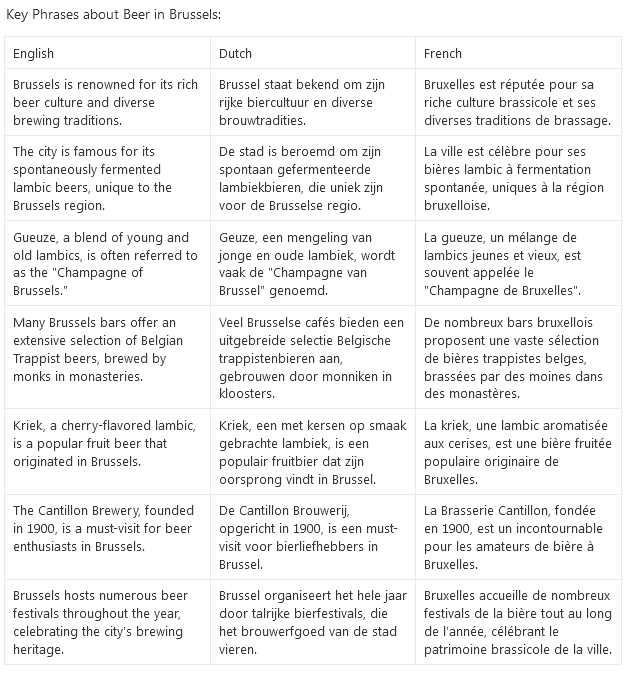
Real-time text translation and explanation
This feature is crucial for me since checking unfamiliar words—even just a few—can be a major hurdle when reading.
Let's examine an example: I selected a few paragraphs from this link
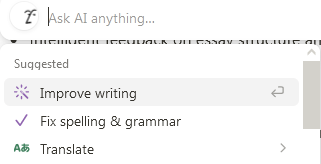
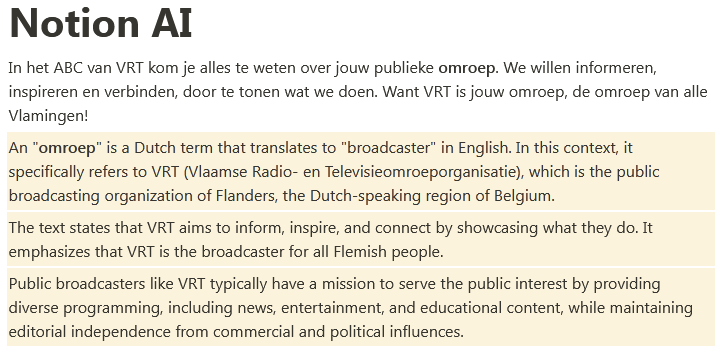
3. Writing Skills
AI-powered grammar and style checkers
While Grammarly is well-known, Notion AI serves as a reliable alternative for multiple languages.
Its advantage lies in improving both individual sentences and overall text structure.
What I find most valuable is understanding the reasoning behind language choices.
Notion AI provides these explanations seamlessly, without requiring external searches or copy-pasting.
Since I'm more fluent in English than Dutch, I often wonder, "Why must I include 'heen'?"
Below is the explanation I received. Though the nuance remains somewhat unclear to me as a non-native speaker, I still find the information valuable.
For now, I'll simply remember to say "over de jaren heen" until I have time to explore the concept further.

4. Speaking Skills
AI-powered speech recognition for pronunciation feedback
While this concept is intriguing, I recognize that few people would use it regularly on their own.
Though various solutions exist for different languages, I prefer ChatGPT.
Despite its American accent across all languages, I've noticed it maintains accurate stress patterns in languages where this is crucial, like Russian. If my pronunciation is poor, it won't recognize the words.
I value this over numerous apps because I can discuss topics of my choice.
For focused pronunciation practice, I prefer shadowing exercises with a teacher.
AI conversation partners for practice
While some use this feature, I need accountability to stay consistent.
One of my students had an excellent approach: she would chat with ChatGPT, share screenshots with me, and we'd analyze her expressions and mistakes together.
This proved especially valuable for her as she was shy and felt self-conscious about speaking Italian in public, having lived in Italy for years without properly learning the language.
This method allowed her to practice independently while still receiving guidance, leading to meaningful discussions about language use.
GO BACK TO THE PREVIOUS LESSON
Do you need an accountability partner? Click here
Want more tips and insights?
